Emergency services respond to three single-vehicle crashes north of Townsville
Emergency services have raced to the aid of motorists involved in three separate single-vehicle crashes in North Queensland.
Townsville
Don't miss out on the headlines from Townsville. Followed categories will be added to My News.
EMERGENCY services have been called the aid of motorists injured in three single-vehicle crashes in North Queensland over the weekend.
A vehicle rolled on Spiegelhauer Rd at the entrance of Big Crystal Creek campground on Sunday at 10.20am.
Three people were able to free themselves from the wreck, with one person suffering neck pain.
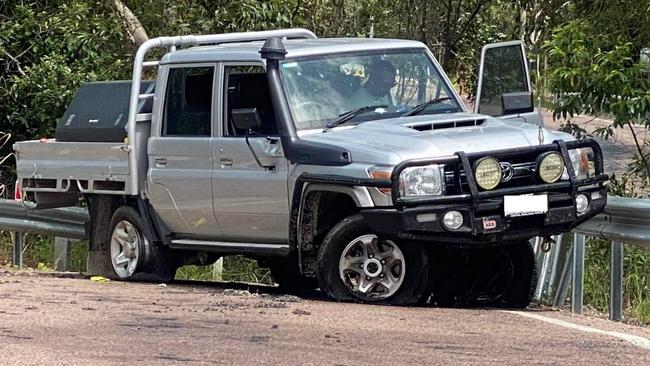
Paramedics transported the patient to Townsville University Hospital in a stable condition.
A Queensland Police spokeswoman said Townsville City Council would need to repair damage caused by the crash to the road and a guard rail.
Police will investigate whether alcohol was a contributing factor in the crash.
On Saturday night, Rescue 8521 Helicopter was brought in to help a man who crashed his car halfway between Ingham and Halifax.
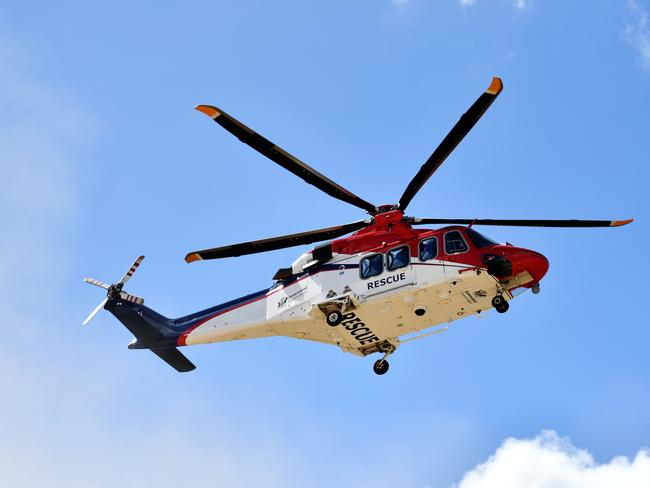
A Queensland Ambulance spokeswoman said a male in his 20s rolled his car at the intersection of Four Mile Rd and Two Mile Rd, in Braemeadows at 8.22pm.
He was airlifted to Townsville University Hospital in a serious but stable condition with a head injury at 10:43pm.
Later that night, paramedics treated a motorist who crashed their car in Burdell.
The QAS spokeswoman said the crash occurred on Waterway Drive at 1.27am Sunday.
The person was transported to Townsville University Hospital in a stable condition with unknown injuries.
Behind the scenes: Townsville’s Covid testing process
THE time pressures are immense, but the handling of potentially infectious fluids are even greater.
The role played by Pathology Queensland supervising scientist Fleur Francis and her team during the pandemic so far, has been one of the most crucial.
“We’re the department that has been doing the actual testing of the swabs, it’s been my role to lead that testing,” she said.
“The last two years has been quite challenging, as it has been for most people in health care.”
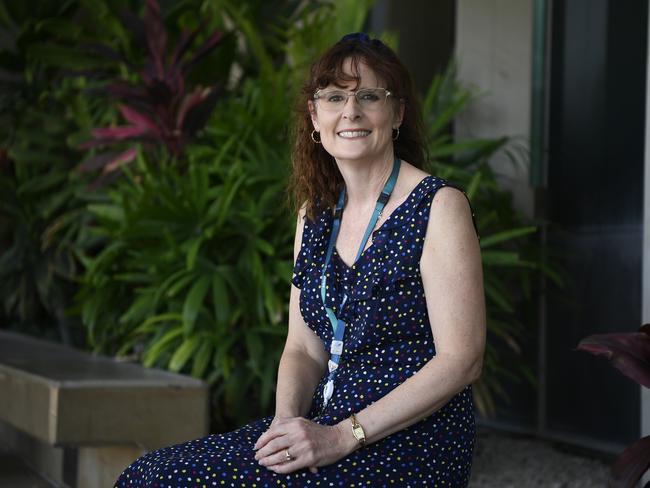
The daily challenge to meet a demand that has been fluctuating over the last two years, with the average day testing hundreds, potentially thousands of samples.
“Once a swab is collected, whether that’s at a healthcare facility or a drive-through, the sample comes into the central specimen reception and at that point they must ensure that the sample are correctly identified, there’s a lot of checking involved before it actually gets to us to be tested.
“We start getting hands on once those checks are completed … not to get too detailed, but we need to liquify the sample, we put a fluid into the swab and shake it about to release any virus or cells into the fluid.
“That fluid is put into a special sterile tube … that goes into an instrument, and that instrument purifies the sample … we need the genetic information in that swab, we use a biochemical process to detect a unique sequence of the genetic code in that sample, we need to find out if in that swab that’s come from a nose or throat, if we can find that unique code that matches the current coronavirus.”
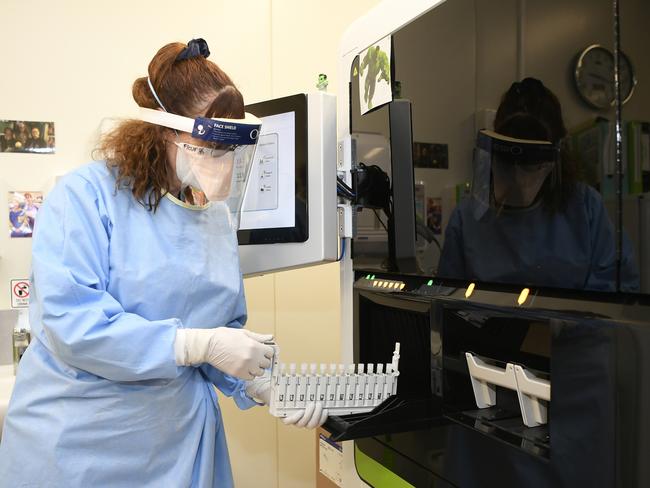
It’s not a quick process, but they’ve come a long way since the beginning of the pandemic, with the process now taking about four hours.
“It takes hours in the machine, it would be at least four hours, you can’t speed it up too much more than that. We have two big analysers that run samples every day.
“That result will then get automatically sms’d to the patient. It’s all very automated.”
For the first two years of the pandemic, Townsville had got off lightly, but when the borders opened cases skyrocketed in the region, increasing the workload.
“We did have some spikes … they soon went down, but this is a really high spike that isn’t going down, there’s no rest.
“We prepare for the worst and hope for the best, we have to focus on the most essential testing, I don’t mean to offend anybody by that … we have to test the patients that are in hospital, we do have a priority list and our priority samples are getting out same day.
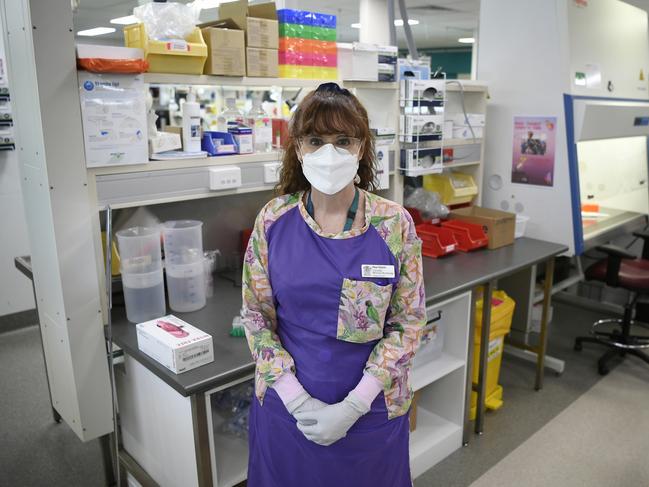
“Then there are extra requests from public health, we are getting an incredible amount of work in, but we do have a capacity to what we can do.
“Everyone is working really hard, we’ve been doing our best … it’s more than a 1,000 a day, every single day and sometimes it’s a lot more than that.”
It has been challenging work, but an interesting time to be a lab scientist.
“I love my science and I always have and I feel very privileged that I do have this job. Working in a lab, I may not be seeing the patients, but I’m part of that essential team of patient care.
“I do adore science … the science that I do has a positive affect on sick people, it is an amazing position to be in and I’m extremely grateful and my whole team is really proud to do what they do and to serve our community the way we do.”
JCU professor explains pandemic’s future
UNCERTAINTY surrounds the future impacts of Covid-19 as the Townsville Hospital and Health Service recorded its first two Covid-related deaths over the weekend.
THHS chief executive Kieran Keyes confirmed that two elderly men in their 70s and 80s had died, offering their deepest condolences to the bereaved families.
On Sunday, Mr Keyes said there were 45 Covid-19 positive inpatients and two patients in ICU.
This comes as James Cook University professor of Infectious Disease and Epidemiology Emma McBryde has revealed insights into the rising number of Covid-19 related deaths and future scenarios for the virus.
In recent years, Professor McBryde has stood on the front line in the battle against Covid-19, crunching the numbers and modelling scenarios to guide government decision-making.
While coronavirus has disproportionately affected the older generations, she said the highly transmissible Omicron variant had an increased severity for the younger age groups, despite being a “milder disease”.
Professor McBryde said it was important we tried to slow down and spread out the peak of the Omicron wave presently being experienced by North Queensland.
“People over the age of 65 and with chronic illnesses … this is the time where they’re most likely to get Covid, and if they are careful now, they might miss out on getting it, which would be very good for them,” Professor McBryde said.
“They should avoid large crowds, particularly indoor crowds, and should be careful about wearing masks, hand hygiene and so on.”
She expected the Omicron wave to pass quickly, marking the beginning of the virus’s shift from pandemic to endemic.
The endemic phase was when “enough of the community was immune, the rate of new infections starts to slow down”.
“But that doesn’t mean to say there can’t be more peaks and troughs, because new variants arise and people’s immunity wanes,” Prof McBryde said.
The professor believed a stable endemic disease might be a year or two off, when the waves had settled.
In one future scenario, she anticipated that younger and younger people would start getting infected and gaining partial immunity.
“What we see with common colds is that you get your first common cold sometime in your first year of life, and then you get it again, a bit milder, and again, and by the time you’re an adult, you’re pretty much immune.
“(Because) you’ve been exposed so many times, it may well start to look a lot more like the common cold – that's one of the more common possibilities.”
At the other end of the spectrum, she said there was the possibility of the virus mutating to become more virulent, escaping the protection offered by vaccines and prior infections.
“If you can imagine something that had the immune escape and the transmissibility of Omicron, but the severity of delta, then we could be in a real bind.”
Professor McBryde was optimistic that the virus wouldn’t become more severe.
“When you think about it from a viral evolutionary point of view, the virus doesn’t particularly want to be more severe, it has no advantage putting people in hospital,” she said.
“But it does have an advantage in making people sick for as long as possible and producing viruses for as long as possible, so we have to wait and see what arises next.”
More Coverage
Originally published as Emergency services respond to three single-vehicle crashes north of Townsville




